School of Medicine
Chair of Physiology and Pathophysiology
Research into kidney function & teaching for students of medicine and dentistry
The Chair of Physiology and Pathophysiology focuses on research into kidney function in healthy and diseased individuals. The research includes innovative projects in molecular and cellular physiology and pathophysiology as well as molecular medicine, which we investigate using state-of-the-art methods.
The Chair is honoured by national and international collaborations and third-party funding, for example from the German Research Foundation (DFG). Current molecular and cellular research approaches should help to understand and treat kidney diseases of various origins.
In teaching, we focus on the entire physiology and pathophysiology of the human body with students of medicine and dentistry: How does the human organism work and what happens in diseases? We also teach aspects of molecular medicine.
Chair
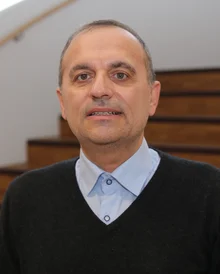
Prof. Dr. med. habil. Dr. rer. nat.
Vladimir Todorov
Chair holder
Faculty of Health (School of Medicine) | Chair of Physiology and Pathophysiology
University spokesperson
Faculty of Health (School of Medicine) | Centre for Biomedical Education and Research
Stockumer Str. 12
58453 Witten
Research
Cell niches with progenitor function
At the Chair of Physiology and Pathophysiology, we conduct basic research with clinical relevance. The aim of the research is to characterise cell niches inside and outside the kidneys that have a potential progenitor function. Progenitor function describes the ability of certain cells to divide and develop into different specialised cell types.
Cell niches with progenitor function keep the body healthy; however, if they do not function properly, they lead to disease or death. We want to better understand the mechanisms of cell differentiation and cell survival by looking at the internal and external factors that influence the process.
Examination of renin cells
The Todorov working group is involved in the field of integrative physiology and pathophysiology with the participation of national and international co-operation partners. The scientific projects are focussed on the following topics:
- Relevance of renin cells for the functional and structural integrity of the kidney with emphasis on the renal vascular system and interactions with the immune system. Renin cells are specialised cells in the kidneys that produce the enzyme renin. Renin plays an important role in the renin-angiotensin-aldosterone system, which regulates blood pressure in the body.
- Novel function of renin cells as a progenitor cell niche both in the kidney and in other organs: role in repair after organ damage and ageing; interaction with immune cells
- Investigation of the role of molecular and cellular mechanisms of embryogenesis as a template for novel concepts for cell and tissue regeneration in the adult organism
- Regulation of endothelial regeneration and permeability
- Repair mechanisms in diabetic nephropathy
Retrieve water from the urine back into the body
The Edemir research group focuses on the cellular and molecular mechanisms in the kidneys that are responsible for the production of concentrated urine. The fine regulation of water reabsorption takes place in the renal collecting ducts and is hormonally regulated via vasopressin. Vasopressin induces the incorporation of aquaporin-2-containing vesicles into the apical plasma membrane and thus increases water conductivity.
One research specialisation is to further decipher the signal transduction mechanisms of aquaporin-2 translocation and to identify possible alternative signalling pathways. The driving force for water reabsorption is an osmotic gradient. A cortico-medullary osmotic gradient prevails in the kidneys. This is not only the driving force for water reabsorption, but also mediates a specific gene expression profile.
Another research specialisation deals with the factors that mediate the specific gene expression profile. For example, the influence of the transcription factor NFAT5, also known as TonEBP, on gene expression in the kidneys is being investigated.
Effects on the energy balance of the cell
The Thévenod/Wolff team is investigating the functional significance of the iron transporter DMT1 in the mitochondrial envelope, including its potential impact on the energy balance of the cell. A second study is investigating the function, subcellular localisation and trafficking of a protein receptor (lipocalin-2/NGAL/24p3 receptor).
Privatdozentin Dr Natascha Wolff cooperates with Max F. Perutz Laboratories Vienna (Dr N. Coudevylle), Cell Biology Aarhus (Prof. R. A. Fenton), and SUNY in Buffalo (Prof. M. Garrick).
What role does the kidney play in diseases?
The Chair of Physiology and Pathophysiology focuses on integrative renal physiology and mechanisms of vascular development, ageing and regeneration with an emphasis on stem cell-niche-immune cell interactions and tissue protection.
The researchers at the chair use modern molecular research approaches such as imaging, quantitative image analysis (also AI-based), cell sorting, generation of transgenic animal models etc. These should help to understand the role of the kidney in cardiovascular diseases, immune diseases and degenerative diseases (translational research). Findings and methods are incorporated into future therapeutic strategies and the training of students at our university.
Cell niches with progenitor function
At the Chair of Physiology and Pathophysiology, we conduct basic research with clinical relevance. The aim of the research is to characterise cell niches inside and outside the kidneys that have a potential progenitor function. Progenitor function describes the ability of certain cells to divide and develop into different specialised cell types.
Cell niches with progenitor function keep the body healthy; however, if they do not function properly, they lead to disease or death. We want to better understand the mechanisms of cell differentiation and cell survival by looking at the internal and external factors that influence the process.
Examination of renin cells
The Todorov working group is involved in the field of integrative physiology and pathophysiology with the participation of national and international co-operation partners. The scientific projects are focussed on the following topics:
- Relevance of renin cells for the functional and structural integrity of the kidney with emphasis on the renal vascular system and interactions with the immune system. Renin cells are specialised cells in the kidneys that produce the enzyme renin. Renin plays an important role in the renin-angiotensin-aldosterone system, which regulates blood pressure in the body.
- Novel function of renin cells as a progenitor cell niche both in the kidney and in other organs: role in repair after organ damage and ageing; interaction with immune cells
- Investigation of the role of molecular and cellular mechanisms of embryogenesis as a template for novel concepts for cell and tissue regeneration in the adult organism
- Regulation of endothelial regeneration and permeability
- Repair mechanisms in diabetic nephropathy
Retrieve water from the urine back into the body
The Edemir research group focuses on the cellular and molecular mechanisms in the kidneys that are responsible for the production of concentrated urine. The fine regulation of water reabsorption takes place in the renal collecting ducts and is hormonally regulated via vasopressin. Vasopressin induces the incorporation of aquaporin-2-containing vesicles into the apical plasma membrane and thus increases water conductivity.
One research specialisation is to further decipher the signal transduction mechanisms of aquaporin-2 translocation and to identify possible alternative signalling pathways. The driving force for water reabsorption is an osmotic gradient. A cortico-medullary osmotic gradient prevails in the kidneys. This is not only the driving force for water reabsorption, but also mediates a specific gene expression profile.
Another research specialisation deals with the factors that mediate the specific gene expression profile. For example, the influence of the transcription factor NFAT5, also known as TonEBP, on gene expression in the kidneys is being investigated.
Effects on the energy balance of the cell
The Thévenod/Wolff team is investigating the functional significance of the iron transporter DMT1 in the mitochondrial envelope, including its potential impact on the energy balance of the cell. A second study is investigating the function, subcellular localisation and trafficking of a protein receptor (lipocalin-2/NGAL/24p3 receptor).
Privatdozentin Dr Natascha Wolff cooperates with Max F. Perutz Laboratories Vienna (Dr N. Coudevylle), Cell Biology Aarhus (Prof. R. A. Fenton), and SUNY in Buffalo (Prof. M. Garrick).
What role does the kidney play in diseases?
The Chair of Physiology and Pathophysiology focuses on integrative renal physiology and mechanisms of vascular development, ageing and regeneration with an emphasis on stem cell-niche-immune cell interactions and tissue protection.
The researchers at the chair use modern molecular research approaches such as imaging, quantitative image analysis (also AI-based), cell sorting, generation of transgenic animal models etc. These should help to understand the role of the kidney in cardiovascular diseases, immune diseases and degenerative diseases (translational research). Findings and methods are incorporated into future therapeutic strategies and the training of students at our university.
Publications
Teaching
The Chair of Physiology and Pathophysiology is part of the model degree programme in medicine programme of the Witten/Herdecke University. The students deal with molecular, cellular and organ-relevant aspects of the entire physiology and pathophysiology. They learn to understand the mechanisms at molecular and cellular level and their impact on the organism as a whole, as well as their significance for the pathogenesis of diseases and causal therapeutic approaches. The chair also offers topics for medical and scientific doctoral theses. If you are interested, please contact us directly.
The main components of teaching are
- Consultation hours and seminars in "Problem-oriented learning" (POL) of the model degree programme in medicine
- Lectures and seminars for dental medicine students
- Physiological internships for students of medicine (POL) and dentistry
- Research internships for students of medicine (POL) and dentistry
- Journal clubs with the presentation of scientific articles in English for interested students from all degree programmes
- Inter-faculty lectures and seminars on methods and research topics in physiology, pathophysiology, toxicology and molecular medicine
- Instruction in scientific methods/academic writing in physiology, pathophysiology, toxicology and molecular medicine in medical and dental doctoral studies, in the PhD programme in Biomedicine and in the Dr. rer. nat. programme
The team at the Chair of Physiology and Pathophysiology
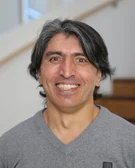
Prof. Dr. rer. nat.
Bayram Edemir
Professorship of Cellular Physiology and Pathophysiology of Epithelial Biomembranes
Faculty of Health (School of Medicine) | Chair of Physiology and Pathophysiology
Stockumer Str. 12
58453 WittenRoom number: E.2
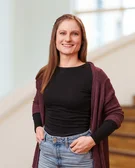
Dr. rer. nat.
Jennifer König
Researcher
Faculty of Health (School of Medicine) | Chair of Physiology and Pathophysiology
Stockumer Str.12
58453 WittenRoom number: E11

Dr rer. nat.
Lubomir Lubomirov
Researcher
Faculty of Health (School of Medicine) | Chair of Physiology and Pathophysiology
Stockumer Str.12
58453 WittenRoom number: E.3

Moritz Pernecker, M. Sc.
Researcher
Faculty of Health (School of Medicine) | Chair of Physiology and Pathophysiology
Stockumer Straße 12
58453 WittenRoom number: E9
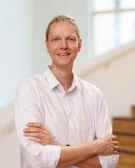
Dr. rer. nat.
Timm Schreiber
Researcher
Faculty of Health (School of Medicine) | Chair of Physiology and Pathophysiology
Stockumer Str. 12
58453 WittenRoom number: E9
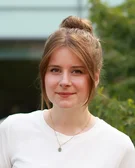
Dr. rer. nat.
Sina Schumacher
Researcher
Faculty of Health (School of Medicine) | Chair of Physiology and Pathophysiology
Stockumer Str. 12
58453 WittenRoom number: E11
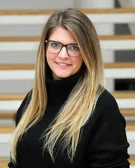
Michelle Maaß
Technical assistance
Faculty of Health (School of Medicine) | Chair of Physiology and Pathophysiology
Stockumer Str. 12
58453 WittenRoom number: E.3
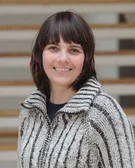
Stephanie Probst
Technical assistance
Faculty of Health (School of Medicine) | Chair of Physiology and Pathophysiology
Stockumer Str. 12
58453 Witten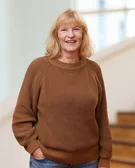
Bettina Scharner
Technical assistance
Faculty of Health (School of Medicine) | Chair of Physiology and Pathophysiology
Stockumer Str.12
58453 WittenRoom number: ST-E.15

Shobika Karuppusamy, M. Sc.
Technical assistance
Faculty of Health (School of Medicine) | Chair of Physiology and Pathophysiology
Stockumer Str. 12
58453 WittenRoom number: E9

Akua Annoh
Doctoral student in natural sciences
Faculty of Health (School of Medicine) | Chair of Physiology and Pathophysiology

Ricardo Lira Martinez
Medical doctoral student
Faculty of Health (School of Medicine) | Chair of Physiology and Pathophysiology

Annika Wegner
Medical doctoral student
Faculty of Health (School of Medicine) | Chair of Physiology and Pathophysiology
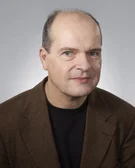
Prof. Dr, med.
Frank Thévenod, Ph. D., FAPS
Emeritus
Faculty of Health (School of Medicine) | Chair of Physiology and Pathophysiology
Stockumer Straße 10
58453 WittenRoom number: ST-E014